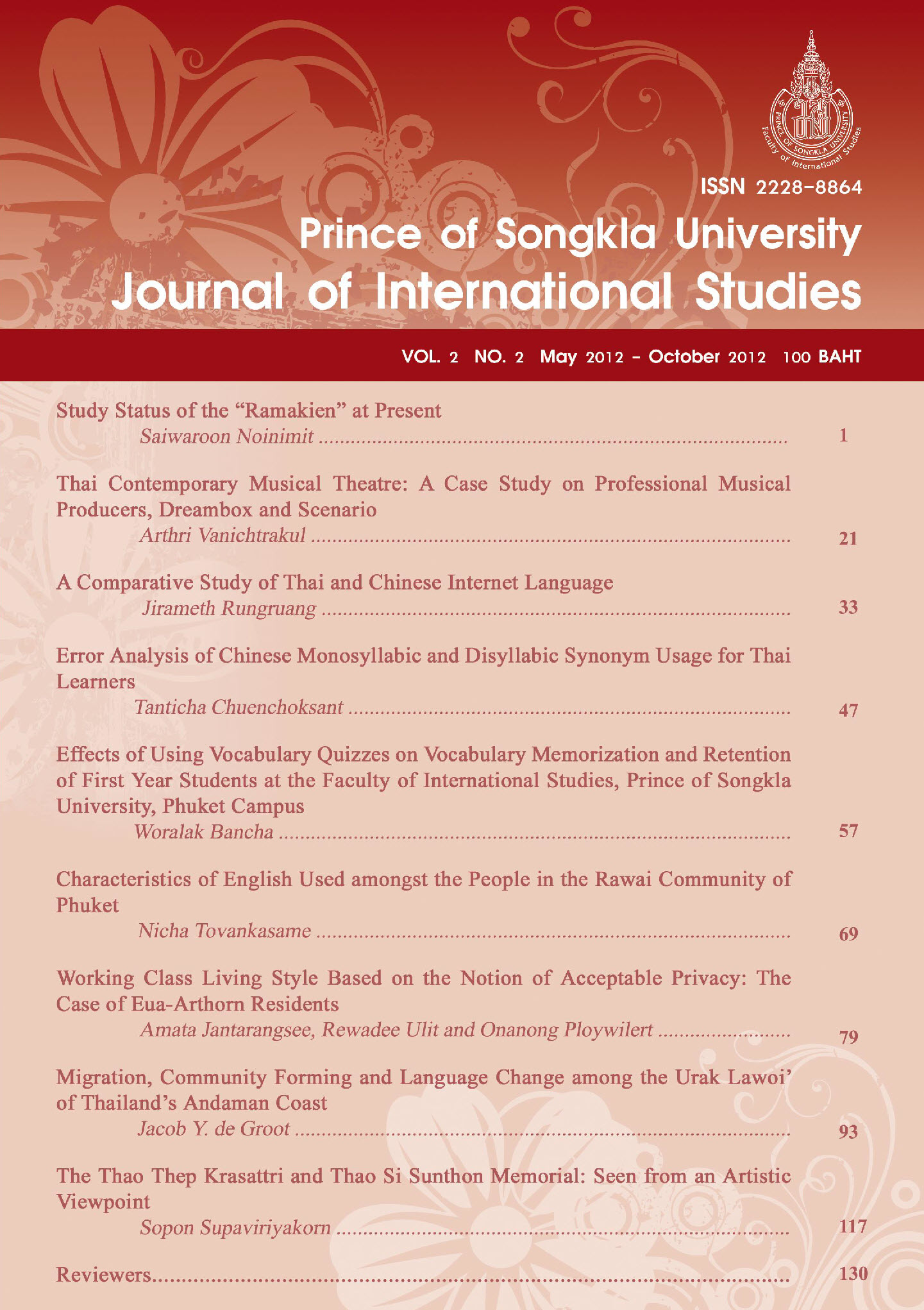A Comparative Study of Thai and Chinese Internet Language
Main Article Content
Abstract
There are both similarities and differences between the Thai internet language and the Chinese internet language. The purpose of this study is to compare the characteristics of Thai and Chinese internet language, as well as the reasons why both languages are used widely.
According to this study, it has been found that there are many similarities between Thai and Chinese internet language: the use of homophones or words pronounced like numbers, the use of emotions, the use of old words with new meanings, the creation of new words, and the use of words influenced by soap operas, news, or online games. In contrast, there are some differences between Thai and Chinese internet languages in areas such as: the use of English words, their use of English abbreviations, and the use of ancient words and dialects.
Thai and Chinese internet languages have been extremely popular because users can save time typing, communicate informal expressions to interlocutors, and express their feelings with facial expressions and emotions through internet languages.
Article Details
Statements and opinions expressed in articles herein are those of the authors and do not necessarily reflect the position of the editors or publisher.
Article, information, text, image, etc. which are published in Journal of International Studies, belong to Journal of International Studies. If anybody or any organization would like to use part or whole of them, they must receive written permission from Journal of International Studies before usage.
References
Mudo o asunnu 2553 970 http://www.khaosod.co.th/view_news.php?newsid Khaosod. (2010). 'Internet Slang' New language for digital man. [Online news]. Khaosod.
Retrieved August 6, 2010, from http://www.khaosod.co.th/view_news.php? newsid LUTVE LOUNOTINA. (2548). Wauqunshau-Ine avilu (aŭuwuvuushanadia). nşsını: - รวมสาส์น Iamworameth, T. (2005). Chinese-Thai dictionary new edition (abbreviation edition).
Bangkok: Ruamsarn. gipunnnua071. (2546). WAWILISH atunpuunmuannu. nguinw: W7uDünántâlnous. The Royal Institute. (2003). The royal institute dictionary. Bangkok: Nanmeebooks
Publication. BBC News. (2008). Don't be 404, know the tech slang. [Online]. Retrieved August 8,
2011, from http://news.bbc.co.uk/2/hi/technology/7775013.stm National Electronics and Computer Technology Center (Nectec). (2010). The
Thailand internet user. [Online]. Retrieved June 1, 2011, from http://internet.nect
ed June 1, 2011, from http://internet.nectec.or.th/ webstats/ internetuser.iir?Sec=internetuser Yang, Z. (2011). "Lucky" numbers, unlucky consumers. The journe
40(5), 692-699.
#. (2010). B xu******AXX JIMA. ** Li, R. (2010). The two-sides effect of internet language toward the stun
Language. Journal of Literature, 3, 69-70.
unlucky consumers. The journal of socio-economics,
TUJ]YA. **W, 3, DTB 69-70. f internet language toward the study of Chinese
刘娟(2011), 网络语言社会心理因素的分析,成都电子机械高等专科学校学报, | 14 (1), 页码 88-90. Liu, J. (2011). The analysis of social psychological factors of internet language. Journal
of Chengdu Higher Machinery Training School, 14(1), 88-90. 吴传飞(2003). 中国网络语言研究概观,湖南师范大学社会科学学报,32(6), 页码
102-105. Wu, C. (2003). The survey of chinese Internet Language. Journal of Social Science Hunan
Nornal University, 32(6), 102-105. 郑玮 (2010). 解读网络表情符号,青年记者,7(2), 页码 109-110. Zheng, W. (2010). Decodation of internet emotional symbol. Youth Reporter, 7(2),
109-110.


